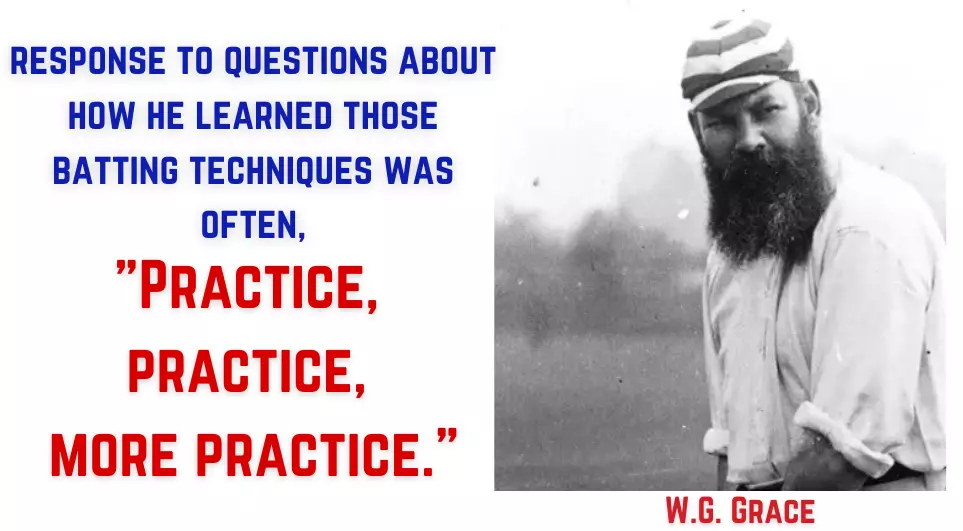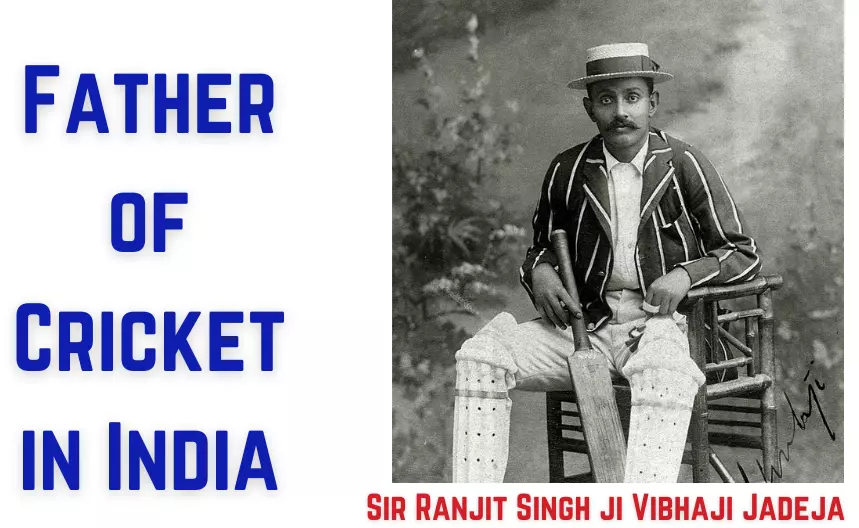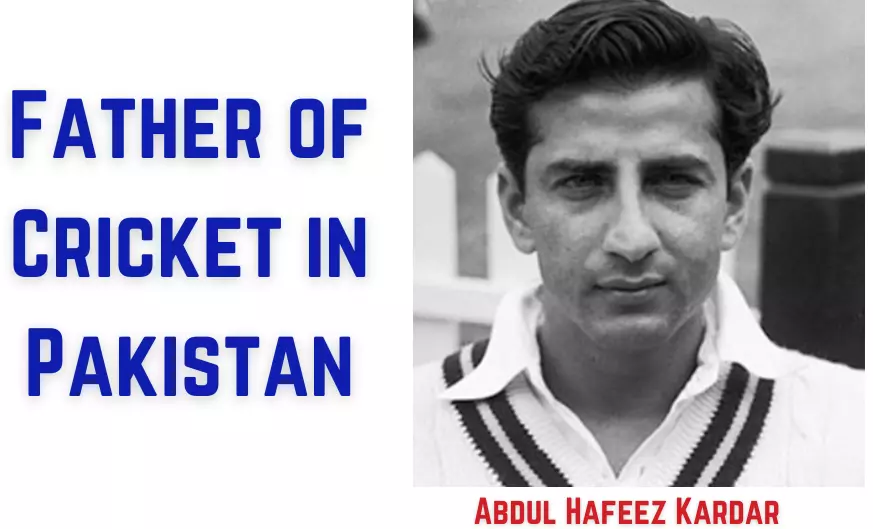When cricket was starting off, it needed to grow and was looking for someone to aid in its growth. Sir W.G. Grace came as a hero to save the cricket and lead it to heights beyond anyone’s wildest imaginings. He sets the much-needed foundation for cricket and is referred to as its father. It takes work, passion, and dedication to build a foundation of any game, and W.G. Grace accomplished all of this for cricket.
He began his professional life as a medical doctor in the health sector, but his love of cricket allowed him to make more money playing it. At that time, this was one of the most strange things that could have happened to England cricket fans, but in actuality, he was the man who gave the game of cricket its foundation.
W.G Grace was born in that era in which English Cricket underwent a lot of transition from 1860 to 1870. His profile is as follows:
| Full Name | W.G Grace |
| Born | 18 July 1848 |
| Died | 23 October 1915 |
| Nickname | W.G, The Doctor, The Champion, The Old Man |
| Role | All Rounder |
Why W.G Grace Was Called the Father of Cricket?
He is referred to as the “father of cricket” because he established the foundation for the game of cricket as we know it today. He introduced inventive techniques in batting and bowling, which was new in that era.
How Did W.G. Grace Revolutionize Cricket?
Cricket was played in the 19th century with a set of basic rules and a finite number of players. Those players were addicted to the traditional style of batting and bowling techniques. W.G Grace brought a revolution by introducing some new techniques. He acquired these techniques and skills by utilizing his imaginative thinking and hard work.
His response to questions about how he learned those batting techniques was often, “Practice, practice, more practice.”
- Before him, batters would focus on one particular stroke and play forward or back. But, W.G Grace came with his specialty of playing forward and back simultaneously. This was a new idea for batters and fans, and everyone was surprised by Grace’s specialty.
- He played perfectly on those pitches that were considered very dangerous for batters at that time. This was the new concept for fans and batters at that time.
- He was a very powerful hitter with a full range of shots and played all around the ground.
- His powerful hitting ability was fully equipped with solid defense, a skill rarely found in batters of that era.
- W.G Grace was a very fit player with tall height; he used these characters for maximum benefit. His tall height was beneficial in his bowling career.
- He was the first Batsman to score a century in First Class cricket before lunch.
- Grace achieved two hundred in a single game in 1868, only the second player in cricket history to do it (the first was William Lambert in 1817).
- He revolutionized the art of batting, bowling, and fielding.
W.G Grace Fitness
W.G. Grace had a huge amount of physical fitness. His fitness can be understood from his innings of 400, not out batting against 22 fielders. At that time, a cricket team had 18, 20, and 22 members. Imagine how he would have picked the gaps for runs, given that he had a 22-member team when he reached 400 undefeated. Most cricket historians believe he achieved 400 runs by taking singles between the wickets. From this point of view, you may imagine how fit W.G. Grace was throughout his lifetime.
Crowd Puller
When W.G. grace wasn’t on the team, there was no crowd. He was a crowd-pleaser; people came to the field to view his shots all over it. They enjoyed, celebrated, and returned to their home after asking about the schedule of the next match. He was the figure that the crowds were eager to see.
He was particularly admired for his mastery of all strokes, and modern reviewers described his skill level as unique. Because of his skill and tactical acumen, he generally captained the teams he played for at all levels.
Aggressive Behavior
Grace’s positive features were setting records and scoring runs like a run machine. However, he was reported as nasty and a sledger. Occasionally, he was caught bullying umpires, but not often. This was the father of cricket’s bad persona, but data trailers understand cricket’s importance to him. These days, it is common for players to sledge, as Virat Kohli and other legends have shown. Even Ricky Ponting did this on the field.
W.G. Grace’s Career Stats as Father of Cricket
His career stats show that he had one of the best first-class and test cricket careers. Additionally, his 2809 first-class wickets and 124 scores serve as a perfect tribute to his cricket prowess. Given his stats, he would undoubtedly be referred to as a God of cricket or King of cricket if born in India.
| Formats | Test | First Class |
| Matches | 22 | 870 |
| Runs | 1098 | 54211 |
| Batting Avg. | 32 | 39 |
| 100s | 02 | 124 |
| 50s | 05 | 251 |
| Highest Score | 170 | 344 |
| Wickets | 09 | 2809 |
| Bowling Average | 26 | 18 |
| Best Bowling | 02/12 | 10/49 |
W.G Cricket Top Records
Despite passing several years, W.G. Grace still has his name among various records lists.
| 100 on Debut |
| Most Runs in Debut Match |
| Oldest Player |
| Longest Career |
| Oldest Captains |
Father of Cricket in India
Sir Ranjit Singh ji Vibhaji Jadeja is known as the father of Cricket in India. He started his career before the formation of the Indian National team. In 1896 he played his debut match against Australia. It means he started his career with the team who Invented Cricket.
He played 307 matches in his first-class career and scored 24692 runs with a batting average of 56. Due to his unorthodox technique of playing at the leg side cut shot, he smashed 72 centuries and 109 fifties.
Father of Cricket in Pakistan
Abdul Hafeez Kardar is famously known as the father of cricket in Pakistan. He is honored to play for the All-Indian National and Pakistan cricket teams because his career started before the partition in 1947.
On different occasions, he played domestic cricket from different sides, like Northern India, Oxford, and Warwickshire.
Abdul Hafeez Kardar played three matches for All India and 27 games for Pakistan, scoring 927 runs and five fifties.
His father had wanted him to become a medical doctor, and he achieved that goal, but cricket was his real passion. This was a result of his childhood because almost every member of his family played cricket. That was the reason he adopted this game very quickly. Everyone at the time believed that he had a talent that God had given to him. But he was lucky to be born into a family that loved cricket and helped their son chase the dream.
As a result, the outcome of this kind of parenting was extremely obvious and altered the trajectory of cricket in England. All the people close to cricket started following him, and his fans grew very quickly at a faster rate.
In theory, yes. You would be surprised by his fame story, after all. He was taken as a celebrity, and fame was the most obvious reason for this status. Everyone loved him, from a common cricket fan to any politician of the highest level.
He was the most well-known athlete of his time and, together with Prime Minister Willie Gladstone, the most well-known Englishman.







